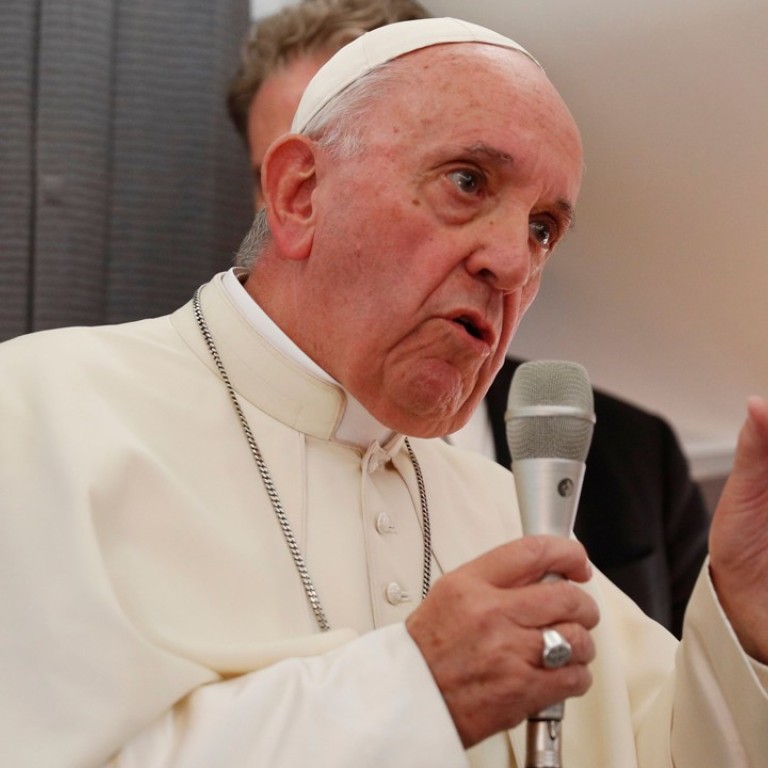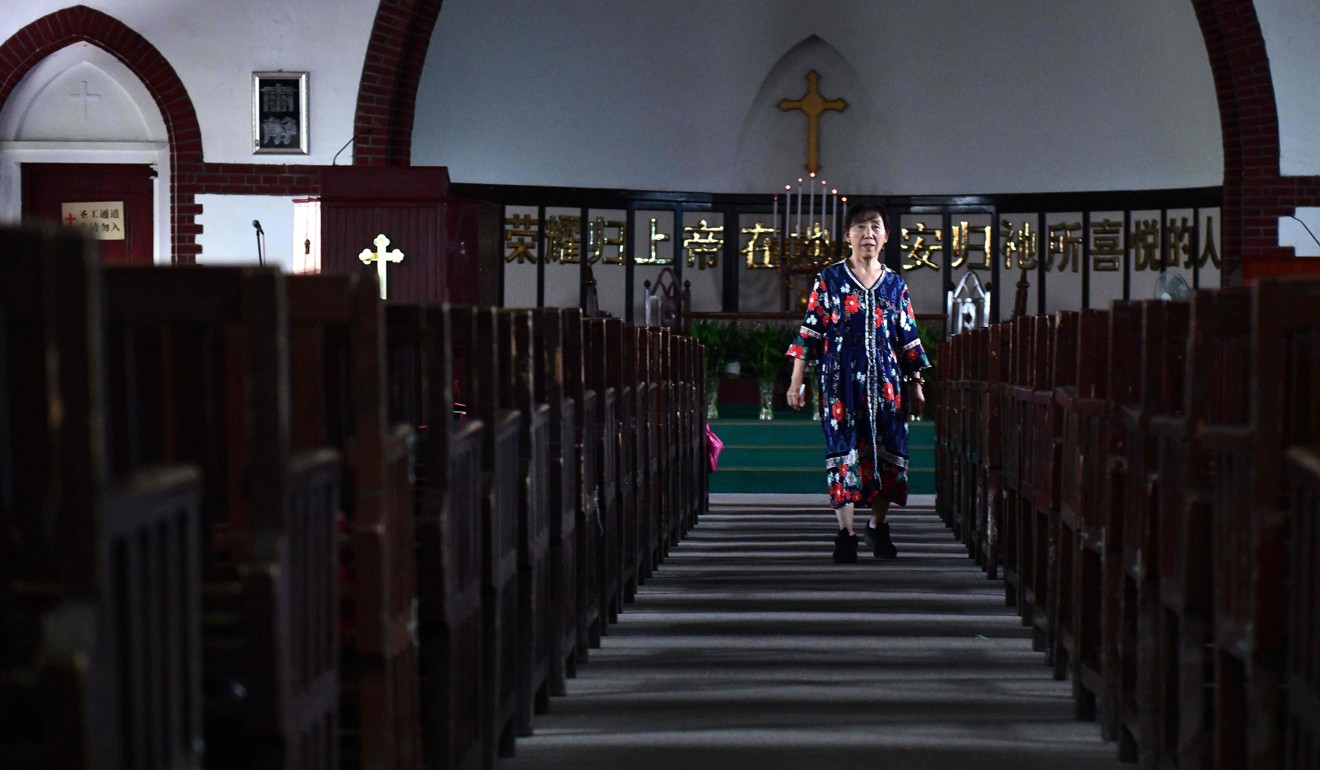
Pope admits underground Chinese Catholics will suffer after Vatican deal with Beijing
In his first comments on Saturday’s agreement, Pope Francis says he – not Beijing – has final say on appointing bishops, but calls it a dialogue
Pope Francis has acknowledged that his landmark deal with China over bishop nominations will cause suffering among the underground faithful – but said that he, not Beijing, will have the ultimate say over naming new bishops.
In his first public comments on the deal signed in Beijing on Saturday, Francis told reporters on the plane returning from a trip to the Baltics on Tuesday that he takes full responsibility for it.
The deal aims to end decades of tensions over bishop nominations that had contributed to dividing the Chinese church and hampered efforts at improving relations.
China’s estimated 12 million Catholics are split between those belonging to the government-backed Chinese Catholic Patriotic Association, which is outside the pope’s authority, and an underground church loyal to the pope. Underground priests and parishioners are frequently detained and harassed.
Francis – and before him Pope Benedict XVI – had tried to unite the two communities, and years of negotiations kicked into high gear over a year ago.
Francis acknowledged that both sides lost something in the talks, and said members of the underground Chinese church “will suffer” as a result of the deal, the text of which has not been released.
“It’s true, they will suffer. There is always suffering in an agreement,” the pope said.
But he said he had already received messages attesting to the “martyr-like faith” of Chinese Catholics and their willingness to accept whatever was decided. He urged prayers “for the suffering for those who don’t understand, or who have so many years behind them of living clandestinely”.

It was a reference to the underground faithful who endured decades of persecution for refusing to join the Patriotic Association and staying loyal to the Holy See. Their cause has long been championed by Hong Kong Cardinal Joseph Zen, who has called Francis’ deal a sell-out of the church to China’s Communist rulers.
Francis said the deal calls for a process of dialogue over possible bishop candidates, but that ultimately the pope decides.
“It’s not that they name. It’s a dialogue on possible candidates,” he said. “The thing is done in dialogue. But Rome names. The pope names. This is clear.”
The issue of bishop nominations had been the main stumbling block to restoring diplomatic relations that were severed nearly seven decades ago when the Chinese communists came to power. The Holy See insisted on the pope’s right to name bishops to preserve the apostolic succession that dates to Jesus’ original apostles. China considered the Vatican’s insistence an infringement on its sovereignty.
Because of the dispute, China over the years named some bishops without papal consent, some of whom were then excommunicated by the church.
A key part of the deal calls for the Vatican to recognise the seven living illegitimate bishops and regularise their status in the church, while also arranging for two legitimate ones to step aside.
Francis said he took personal responsibility for the deal, and signed each of the decrees reconciling with the seven bishops.
The Vatican announced the deal on Saturday, saying that from now on all bishops in China are in communion with Rome. The Vatican said it was provisional in nature, suggesting it could be revisited periodically.
Zen has been the main figure in criticising the deal, but Francis noted there is plenty of historic precedents for state authorities naming bishops, including in his native Latin America.
“Let’s not forget that, thank God, we overcame this, but that for 350 years it was the kings of Portugal and Spain who named bishops and the pope gave his jurisdiction,” Francis said. “Let’s not forget that in the case of the Austro-Hungarian empire, Maria Theresa got tired of signing the nominations of bishops and gave the jurisdiction to the Vatican.”
While acknowledging the suffering of some underground faithful in China, Francis pointed to what he considered a good sign that the church is beginning to unify. He noted that in the weeks after a retired Vatican ambassador accused him of covering up the sexual misconduct of an American cardinal, bishops conferences around the world wrote to him voicing their support.
The Chinese faithful wrote to him as well, he said. Both an underground bishop and a bishop of the Patriotic Church signed the same letter.
“Together, both of them. And faithful, both of them. For me this is a signal,” Francis said.
Additional reporting by Reuters

